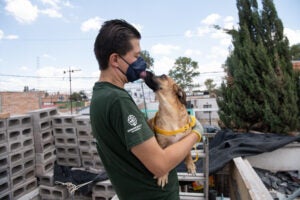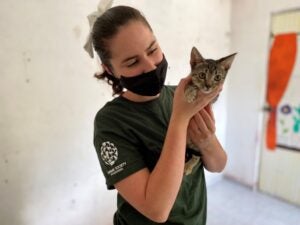
MEXICO CITY, Mexico—Humane Society International/ Mexico, a world-leading animal protection organization, congratulates the Congress of Mexico City for approving reforms to the Penal Code for the Federal District, the Animal Protection Law and the Civic Culture Law of Mexico City to deter and end the abandonment, mutilation for aesthetic reasons, mistreatment, poisoning, kidnapping, consumption of, and cruelty to, companion animals, in addition to the operation of illicit slaughterhouses and the use of an animal for sexual purposes.
The penalties for such animal cruelty have been increased to between one and six years in prison. In cases of serious animal suffering, the penalties can be increased up to 10 years in prison. Previously, the penalties were between six months and four years in prison. Financial fines have also been increased.
Dr. Claudia Edwards, veterinary and program director for HSI/Mexico, said: “This is a milestone moment for animal protection in Mexico City that legislators have decided to increase penalties against the abandonment, poisoning, mistreatment, consumption of and cruelty to companion animals. Bigger fines and longer jail time is a welcome deterrent against animal abuse. The reforms comply with the provisions of article 13, section b of the political Constitution of Mexico City, and recognize animals as sentient beings. As such, it is the legal obligation of every citizen to respect the life and integrity of animals. However, HSI/Mexico regrets that these reforms do not yet include the dogfighting industry which is responsible for terrible animal cruelty and which has been discussed without action for some years in Mexico City. We urge legislators to expand the scope of these revisions to help stop the abuse experienced by dogs used for fighting.”
ENDS
Media contact: Magaly Garibay: 55 5407 0502, mgaribay@idee.agency









